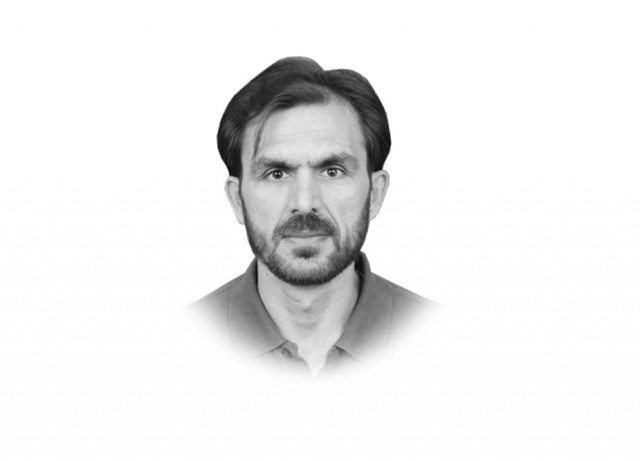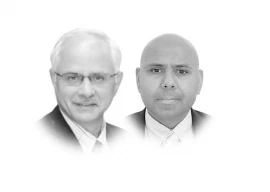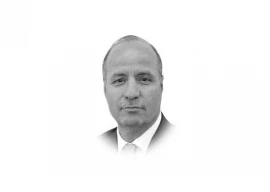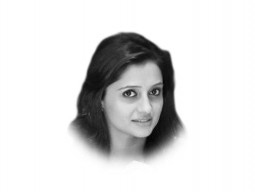
The House of Saud in Saudi Arabia is alarmed, and rightly so, by the largely Shia uprising in its immediate neighbourhood, Bahrain — the island state which is considered by the US and its Arab Sunni allies as a bulwark against the perceived ambitions of the Shia power Iran.
Fearing a spillover, Riyadh has put its weight behind Bahrain’s monarch, Hamad bin Isa alKhalifa, and sent troops, along with other members of the Gulf Cooperation Council (GCC), to help him quell the rebellion which, it suspects, is being orchestrated by its ideological rival, Iran. The Iranians have not only complained to the United Nations but are also protesting this ‘invasion’ on the streets amid signs of diplomatic tensions between Tehran and other Arab Gulf states, particularly Saudi Arabia. The GCC, in response, blamed Iran of sowing the seeds of “discord and destruction” in the region and asked the UN Security Council to take “necessary measures” to stop this “flagrant Iranian interference and provocations”.
As the leader of ‘Iranophobic’ Gulf Arab states, Saudi Arabia has always tended to contain the Iranian revolution. In the 1980s, it had overtly and covertly supported Iraq’s Saddam Hussein in his war against the revolutionary Iran. And in 2009, it had sent troops into Yemen to crush a revolt by the powerful Shia tribe of Houti against the rule of President Ali Abdullah Saleh.
In Pakistan, the Shia Ulema Council is rallying support for the protesters in Bahrain. But, at the same time, clerics from the Deobandi school of thought, whose seminaries are by and large being fed by Saudi money, have also sprung up in defence of the Saudi royal family. Not only is this stoking sectarian tensions in Pakistan, it is also having an impact on Islamabad’s ties with other nations.
Iran is unhappy with Pakistan’s support for Bahrain’s monarch, who has thousands of Pakistani expatriates in his armed forces and police. And Tehran isn’t mincing words to express its anger. Bahrain Foreign Minister Sheikh Khalid bin Ahmed alKhalifa visited Islamabad last month to seek a reiteration of support from Pakistan, which he got. The same day, the Imamia Student Organisation, the largest Shia student body in Pakistan, rallied in the capital to vent their anger against the trip and to voice support for the Bahraini protesters.
Over in Tehran, Pakistan’s charge d’affaires was reportedly summoned to the foreign ministry to convey Iran’s displeasure over the ‘recruitment’ in Pakistan for Bahrain’s armed forces and police, which, the ministry said, if not stopped, would have ramifications for the two countries’ diplomatic relations.
On the other hand, the Saudi king’s special emissary, Prince Bandar bin Sultan, also toured Islamabad last month to muster Pakistan’s support in anticipation of ‘foreign-instigated’ unrest in the oil-rich kingdom. The Saudis suspect Iran is using al Qaeda in Pakistan’s tribal regions to destabilise the Sunni states in the Persian Gulf, Saudi Arabia in particular. And Riyadh wants Islamabad’s help to counter this threat.
The Iranians, on their part, believe the Saudis, in connivance with the American CIA, are supporting the Jundallah militant group based in Pakistan’s Balochistan province to destabilise the south-eastern Iranian province of Sistan-Balochistan. This is notwithstanding the fact that Pakistan has helped Iran arrest key Jundallah leaders, including kingpin Abdulmalik Rigi. Pakistan may be sucked into another deadly sectarian strife if current public trends over the Gulf unrest are not checked immediately. Pakistan cannot afford this, especially at a time when it is already facing an existential threat in the form of a Taliban insurgency.
Published in The Express Tribune, April 20th, 2011.














COMMENTS
Comments are moderated and generally will be posted if they are on-topic and not abusive.
For more information, please see our Comments FAQ